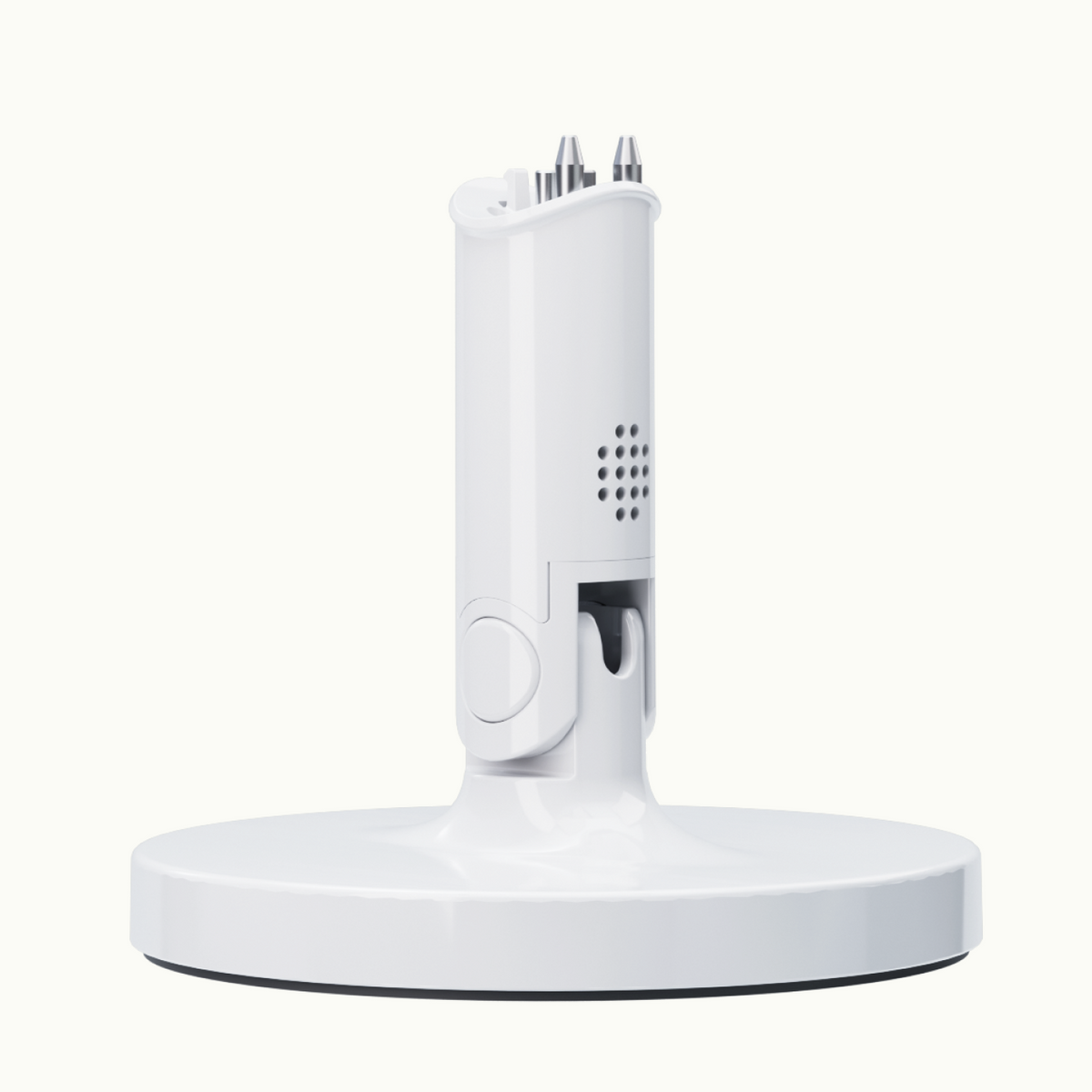Oh, sweet relief. Imagine it: After a long day of going through your normal routines all while being pregnant, you’re finally nestling into your soft bed, cuddling up to a body pillow (treat yourself!), and listening to your partner not snoring. You are so ready for a good night’s sleep that your whole body seems to exhale. Five minutes, ten minutes, thirty long minutes later and you still can’t sleep? While pregnant women should absolutely be exempt from insomnia, this one-sided love affair will haunt many mamas-to-be.
So, what do you do about it? And why is it so common for exhausted pregnant women to be wide-awake for hours past their bedtime?
A few common causes of pregnancy insomnia are:
- always wanting to be aware of baby movements (making sure baby isn’t still for too long)
- having to get up multiple times to pee (or, you know, imagining you do)
- out of control hormones
- common pregnancy symptoms like heartburn and congestion that seem to become enraged when you’re supine
- an overactive imagination that obsesses over everything that could go wrong
While a few nights of restlessness are inevitable during pregnancy, you can say goodbye to regular bouts of insomnia by incorporating the following into your life:
Pregnancy Insomnia Tip 1: Practice Sleep-Inducing Rituals
What activities, aromas, sounds, and textures soothe your mind and body? Do you live for yoga and meditation, hang a wind chime, light some incense and try a few sun-salutations, followed by a guided meditation (in bed). Whatever helps you unwind, incorporate it into your bedtime routine, starting the routine about an hour before bedtime. If soaking in warm water is your jam, start by drawing a warm bath before bed, adding a few candles to up the tranquility, turning off the lights, and listening to your favorite mellow music. In your second and third trimester, it’s safe to incorporate soothing essential oils like lavender or chamomile into these rituals. There’s no right or wrong ritual to practice as long as it sends your mind and body the clear message that it’s time for lights out.
Pregnancy Insomnia Tip 2: Clear Your Mind With Journaling
The mental hamster wheel of what-ifs culprit No.1 when it comes to pregnancy insomnia, but it’s easy to remedy by pulling all those worried thoughts out of your mind and putting them on paper. Keep a notebook and a pen by your bed so you can get out those thoughts before they get your mind spinning.
Studies have shown that writing about our worries helps us unload our anxieties and gives us more space to use on productive activities, like sleeping (lightbulb moment!). If you’re new to this whole journaling thing, start off with a list of things you’re grateful for, or things you’re looking forward to (baby included). Quite often you’ll find once you start, it’s hard to put the pen down. Alas, you’ll tire your mind out and have a lot of thoughts to look back on once baby arrives!
Pregnancy Insomnia Tip 3: Be Vigilant With Hydration Until 7pm
Ah, incessant urination, the bane of the pregnant woman’s existence, with an emphasis on her nighttime existence. Because proper hydration is a mega-must during pregnancy it’s not advisable to drink less water, but you can choose when you drink water. Work out a plan to get in your recommended 2.3 liters of water before 7pm (for example, have a one liter bottle of water that you drink and refill at least 2.5 times before the evening) so your bladder can empty its contents before bedtime.
Pregnancy Insomnia Tip 4:. Eat A Protein Rich Dinner
According to research from Purdue University, eating a diet rich in protein helps you have a deeper, more restorative slumber since protein helps to keep your blood sugar levels stable throughout the night. And, because protein is essential to pretty much every critical function in your body, and is a crucial baby-building block, go ahead and say yes to that bowl of lentils topped with salmon and kale. Oh, and frozen yogurt also has a decent amount of protein, especially when you top it with nuts.
Pregnancy Insomnia Tip 5: Back to Blackout (Curtains)
Did you know that artificial lighting can increase your stress hormones at night and suppress your melatonin levels? Melatonin is a lovely little hormone that lowers your glucose levels, body temperature, and blood pressure, all of which helps your body settle into sleep. Nurture your melatonin levels by covering bedroom windows with blackout curtains (preventing artificial outdoor lighting from sneaking in), and cover any other light sources from items such as phones, alarm clocks, computers, or other digi-light-emitters.
Pregnancy Insomnia Tip 6: Makeover Your Bedroom: 5-Star Hotel Edition
Our motto is: if you don’t yearn for your bed at the end of the day, you deserve to upgrade it. Ensure you’re sleeping on a supportive mattress, have high quality sheets (pick a thread count that suits your skin – and your budget), and a supportive pillow (the aforementioned body pillow is a must for many pregnant women.)
Another unknown sleep-disrupter in many beds is dust mites, which according to WebMD, 20 million Americans are allergic to. To kick dust mites out of your bed, cover your mattress in an “allergy proof” slipcover, and wash all your bedding in hot water at least once a week. If you sleep hot during pregnancy, try moisture-wicking sheets (available at every price point these days). When it comes to linen or cotton sheets, people get pretty passionate; so we’ll leave that up to personal preference – lightweight and breathable is your best bet.
Your bed should be so enjoyable the finest hotels will be calling you for bedding advice. And another fun idea: make it – really nicely with precise hotel corners. Spritz some lavendar if you’re inclined to. Maybe you like the gentle whirring of a fan, or a white noise machine? Perhaps the soothing sounds of nature is more your thing. Open the windows and let the breeze in. Make it however feels most luxurious to you, and get into a comfy position.
Pregnancy Insomnia Tip 7: Tire Your Preggo Body Out With Some Exercise
There’s nothing like getting the heartrate up during the daylight hours to help you wind down at night. Stimulation, anxiety, and depression are a few factors that can prevent you from getting some shut-eye, and you know what’s good for minimizing them? A healthy dose of exercise. . It’s been found that aerobic exercise, like walking or swimming, reduces the amount of time it takes to fall asleep, and not only that, but it helps the body stay asleep for longer periods of time. That’s win-win, if you ask us. The ideal time to put on your walking shoes, or slide into the pool, is first thing in the morning as you’re less likely to skip your workout. Plus, exercising first thing will help you spend more time in the reparative stages of sleep, according to Sleep.org.
But if you’re not an early bird (or simply like to check life maintenance off your to-do list in the morning), exercising at any point of the day – between breakfast to dinner – is likely to help you burn energy (aka: tire you out). We know it can be difficult to build up motivation to get going, but if you’re craving sleep, give it a try – getting the blood pumping is good for you and baby.
Pregnancy Insomnia Tip 8: Dial Up Your Wellness Routine For Pregnancy
There are numerous sheep jumping through your brain but still no sleep – sound familiar? Knowing your personal relaxation cues will go a long way in helping you get some rest. Anything from simple sounds that conjure peaceful memories or certain wellness indicators (like the scent of eucalyptus from that spa you like) you can’t forget, will work. Having a cheat sheet of effective and easy relaxation techniques to use when the insomnia refuses to fade can be your saving grace. When you’re not desperately seeking zzz’s (so: daytime) , try out different relaxation techniques like sleep-specific guided meditations, deep breathing, soothing affirmations (one to try: “my mind and body easily let go and drift into a deep sleep”), or counting exercises that incorporate visualization. Count down from 40 to 0, while envisioning a natural relaxant flowing from the top of your head to the tips of your toes as you slowly count down the numbers. Figure out what works best for you, add them to your sleep tool kit, and pull them out when your brain won’t shut off
Sweet dreams soon-to-be-mama!






